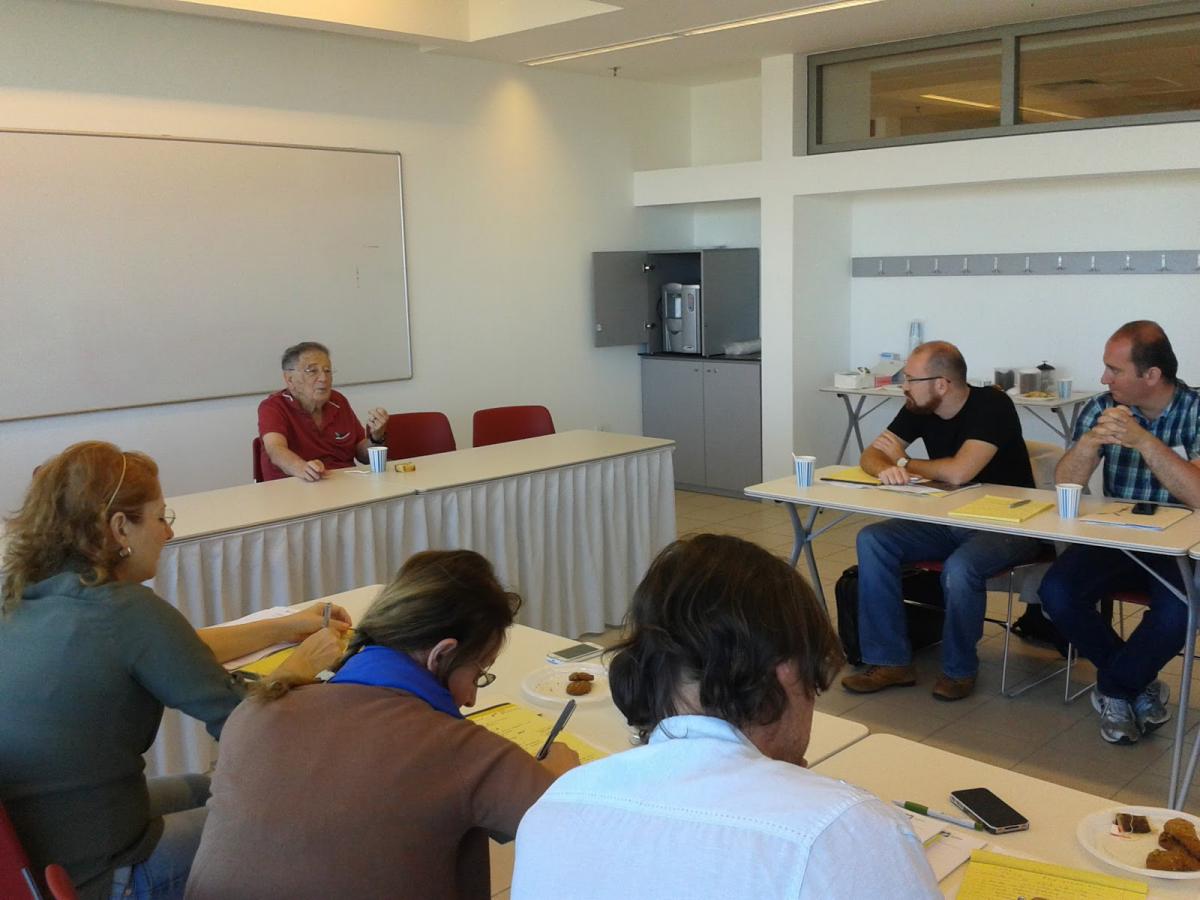

A seminar on Holocaust studies for a group of academics from Turkey has generated some exceptional and diverse educational activities just one year later. In June 2014, the International School for Holocaust Studies of Yad Vashem, in cooperation with the Aladdin Project, organized a first-of-a-kind seminar which was attended by an outstanding group of educators. The extended program began in 2013, with an international conference at Galatasaray University in Istanbul, followed by participation in an online course designed by Yad Vashem's experts. This summer, the seminar graduates have already begun to incorporate the study of the Holocaust into their classrooms, effectively become emissaries for Yad Vashem in their home country.
One graduate, a professor at a university in Istanbul who requested he remain anonymous, is using Yad Vashem online materials to teach about the Holocaust. In the lead-up to class discussions on the Holocaust, his students viewed Dr. David Silberklang's online presentation and read passages from the websites of Yad Vashem and the United States Holocaust Memorial Museum. In class, the professor gave a half-hour introduction to the Holocaust, including Jewish life in Eastern Europe, Emancipation, the Dreyfus Affair, the 1881 pogroms and the 1903 Kishinev Pogrom, the rise of Nazism in Germany, and antisemitism.
"The students told me they were profoundly moved when they watched Dr. Silberklang's explanations, and were horrified by the level of cruelty," said the professor. "Some of them admitted to crying while watching the video."
The professor teaches Turkish and international students together, and they had a diverse knowledge base. "My German student seemed to know more about this subject than all the other students," said the professor. "My Polish student, on the other hand, talked about the increasing interest in Jewish life in Poland. The Turkish students knew much more about World War I, which preceded the Turkish War of National Liberation (1919-1922), than World War II, because Turkey was not involved in the latter."
Yad Vashem staff presentation of cutting-edge educational resources provided participants with essential tools for teaching their students. James McMillan is a British citizen who teaches English at the Enka Private School in Adapazarı, Turkey. "The Yad Vashem website is a wonderful help, and one of the few places where I can find accurate information," he said. Prior to participating in the seminar in Jerusalem, McMillan took a Turkish student group to visit the Auschwitz-Birkenau State Memorial Museum and Jewish sites in Krakow. "As far as I know, we were the first Turkish school to educate students about the Holocaust, as well as to visit two of the authentic sites where so much terror and murder had occurred," he said.
An active contributor to the Facebook page of the International School for Holocaust Studies of Yad Vashem, social media has enabled McMillan to make contact and speak with many descendents of Holocaust survivors. "I have also made friends with Mrs. Toba Abramczyk, whose father survived four camps, including Auschwitz, then survived one of the death marches, said McMillan. He expressed the hope that his students would have the opportunity to speak with her via Skype and learn about the second generation of Holocaust survivors as well.
Teaching the Holocaust and other genocides to students in Turkey can be very complex and challenging in the context of Turkey's own history and the current mid-east realities." Teaching about life before the war is so important because it gives the victim a face, a life, a background," said McMillan. "This is our ultimate response to racism and prejudice, and I am committed to transmitting that message to my students."
This special project was supported by the International Holocaust Remembrance Alliance and the International Commission on Holocaust Era Insurance Claims.









